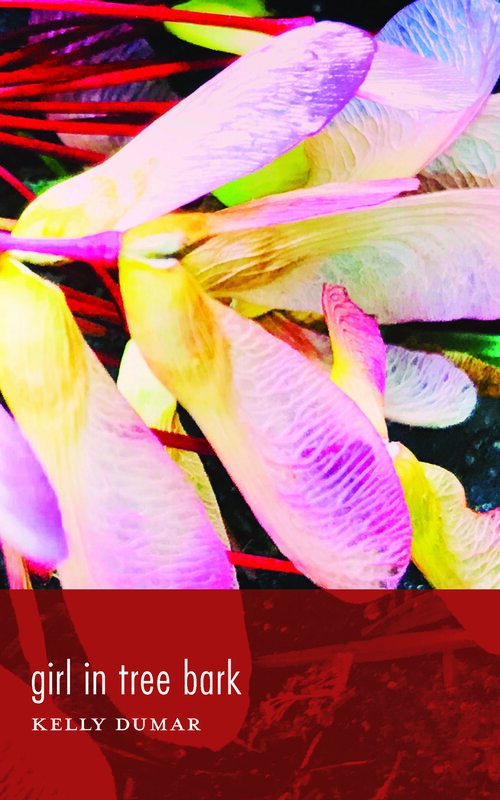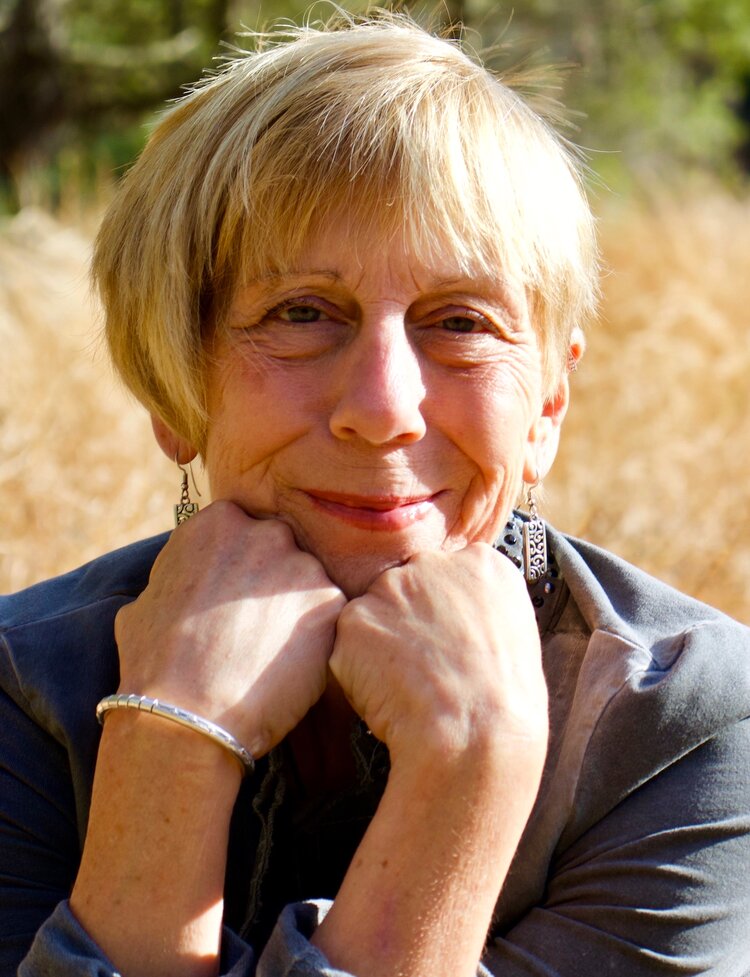Do you have a writing routine? A favorite time or place to write?
Yes, I write every day. Not poems every day, per se. But my daily blog, inspired by my walks in nature and the photographs I take, inspire my writing ritual. My blog, #NewThisDay, is my kind of shared personal journal. I frame my writing day around the influence of the photos, the feelings, thoughts, associations, reflections and imaginative leaps they inspire. This keeps me in a lyrical frame of spirit. Often, this writing produces a theme or a fragment that I will use to develop a poem. Belonging to a weekly poetry workshop makes a huge difference to me. Keeps me on target with producing or revising at least one poem, often more, per week. This accountability and inspiration are the soundest craft input there could be, as I trust my workshop peers and facilitator, and their own poems and process, and comments on mine, are hugely helpful.
Where do your poems most often come from—an image, a sound, a phrase, an idea?
Many of my poems are inspired by images–personal photos. I write ekphrastically from my own photos, ones I take, or ones from my family albums. I’m fascinated by exploring the three-dimensional world of images to express the dramatic elements of the freeze-framed moments. This method appeals to the playwright in me. A photo is like a stage set: every single prop and element exists for a reason. I write from a photo with “heat” – the image moves me emotionally and also mystifies me, in the sense that it tugs at my curiosity. I feel I have to know something the image wants to communicate to me. I write for what I call the secret reveal, which comes from the unconscious inspiration a photo sparks in me. To express what I know I didn’t know I knew, and to engage with the beautiful drama of discovery of hidden emotions and deeper meanings.

Tell us a little bit about your new collection: what’s the significance of the title?
The title is after my poem, the last one of the book, the last one I wrote: “girl in tree bark.” When I was 59, on my daily walk in the woods, I saw a piece of tree bark on the path, and in the shape of the lichen I saw a girl in a dress. I knew this was a photo I would absolutely have to write from to discover this secret reveal. Why am I seeing this girl now? What does this “map of consciousness” have to tell me about this rite of passage, turning 60? How am I changing as I age out of roles that have been so significant in my life? The Jungian concept of “active imagination” really guides me. I encounter enchantment. I let the girl in the photo speak to the grown woman, in a sense. My youngest daughter at this time was leaving home. Her rite of passage was also mine. No longer in the primary parenting role, this poem marks my journey into a different sense of self and purpose. An ache and a joy.
What are the themes?
Gosh, instead of listing themes, I hope it’s not cheating to answer this question with somebody’s else’s words. Because, I really appreciate what Tom Daley, a poetry mentor, who reviewed “girl in tree bark” wrote. He describes the heart of my process and the effect of my poems in such astute way, he showed me what I’d done: “The past, especially the life of the family of origin, acts as a kind of sap that provides nutrients for the photosynthesis that charges the poems. But the poems send their salubrious nourishment down to the past, which becomes transformed with the poem-making. The effect of the past on the present, and vice-versa, is not static; it is a reciprocally kinetic symbiosis, played out in fluent, daring narratives, in language keen with insight and liquid with sumptuous musicality. In almost every poem, a coupling of devastation and healing works a remarkable magic.”
The evolution of the parent/child relationship over decades is a major theme. The death of my father from Alzheimer’s and also, a revisiting of my relationship with my mother, understanding and coming to terms with the nature of her expressions of love.
What was the process of assembling it?
Instinct and intuition. Thinking about a dramatic arc. Moving from opening poems about my parents, no longer alive, goodbye poems to them in a sense, to close with the title poem where I am contemplating the role of “orphan” – not having parents alive in the world.
What was the publishing process like?
I am very pleased with the production and editing and design of my book by Michael McInnis of Nixes Mate. Being published locally, by a Boston based small press, has been really nice, as they are very supportive of their authors with readings and events, and I’ve really felt as though my poetry community has been enlarged.
Who are your major poetic influences, your poetic ancestors, so to speak?
Adrienne Rich, Sharon Olds, Lucille Clifton, Mary Reufle are major influences in theme and form. I would say they are indirectly influencing my imagination and my voice and giving a kind of necessary permission to go there.
What are you working on now that your book is out in the world?
Instinctively, I feel it’s time for my first full-length collection and the poems I currently am working on continue to be about family, seasons and cycles of life, and the evolution of significant roles. I’m writing love poems about a long marriage–this is new for me. One framing idea I have for this new manuscript involves the themes of marriage, not just my own personal one, but marriages that have influenced me, or continue to influence me. My husband and I hosted our first wedding this past year, of our daughter, on our property on the Charles River. So, marriage and weddings are on my mind a lot – lots of juicy material generated by the making of a wedding, as well as the experience of marriage over decades, and the ways I’ve been influenced by my parents’ marriage and the marriages that have been role models for my own. What is marriage, why does it matter, and to whom, and how the event itself is staged as a performance intrigues me.
What art, writing, or media is moving you right now?
I’ve taken a few writing journeys to New Mexico in the past years, and the art and life of Georgia O’Keeffe continue to intrigue and inspire me. The landscape of her experiences, the desert in Abiquiu, the way she inhabited, mined and integrated her setting and imaginative response to it inspires me. It’s a bit of how I draw from my experience of living in the woods on the Charles River–my writing habitat. Also, the poetry, lives and writing habitats of Lorine Niedecker, Alice Oswald and Fleda Brown. In terms of television, Fleabag knocked my socks off as a dark comedy that was birthed on the stage as a one-woman show and then moved to television so successfully with the breaking of the fourth wall and Phoebe Waller-Bridge masterfully delivered asides to the audience.
Read an excerpt from girl in tree bark:
girl in tree bark
Formed among filaments
of parents, like lichen,
I branched.
Six decades crisper now
to my self on the floor
I appear
pale-ish green
and leaf-like, my dress
peels off crusted flakes
giving my girlhood
a pretty powder.
But, having been stamped
of mother, who moistened
and father, who anchored me—
I’m charting my slippage
fallen bark from our tree
on this found map of ground
where I must belong – while
Off spring, my own
crackling our tree,
creep beyond me.
How will any one
know who I am
on my island of
end and began?
Girl in a forest knows
no two parents are alike
to see a lichen, like me, again.

Kelly DuMar is a poet, playwright and workshop facilitator from the Boston area. She’s author of three poetry collections: girl in tree bark, (Nixes Mate), Tree of the Apple (Two of Cups Press), and All These Cures, (Lit House Press). Kelly’s poems are published in Bellevue Literary Review, Tupelo Quarterly, Tiferet, and more. She’s on the board and faculty of the International Women’s Writing Guild where she produces the annual Boston Writing Conference, and runs the weeklong Play Lab Intensive at the summer conference. Kelly has been producing the Our Voices Festival for Boston area women playwrights at Wellesley College for over a decade. Her Farm Pond Writer’s Collective, a weekly workshop for women writers, is now in its 5th year. You can read Kelly’s daily blog, #NewThisDay, at kellydumar.com/blog